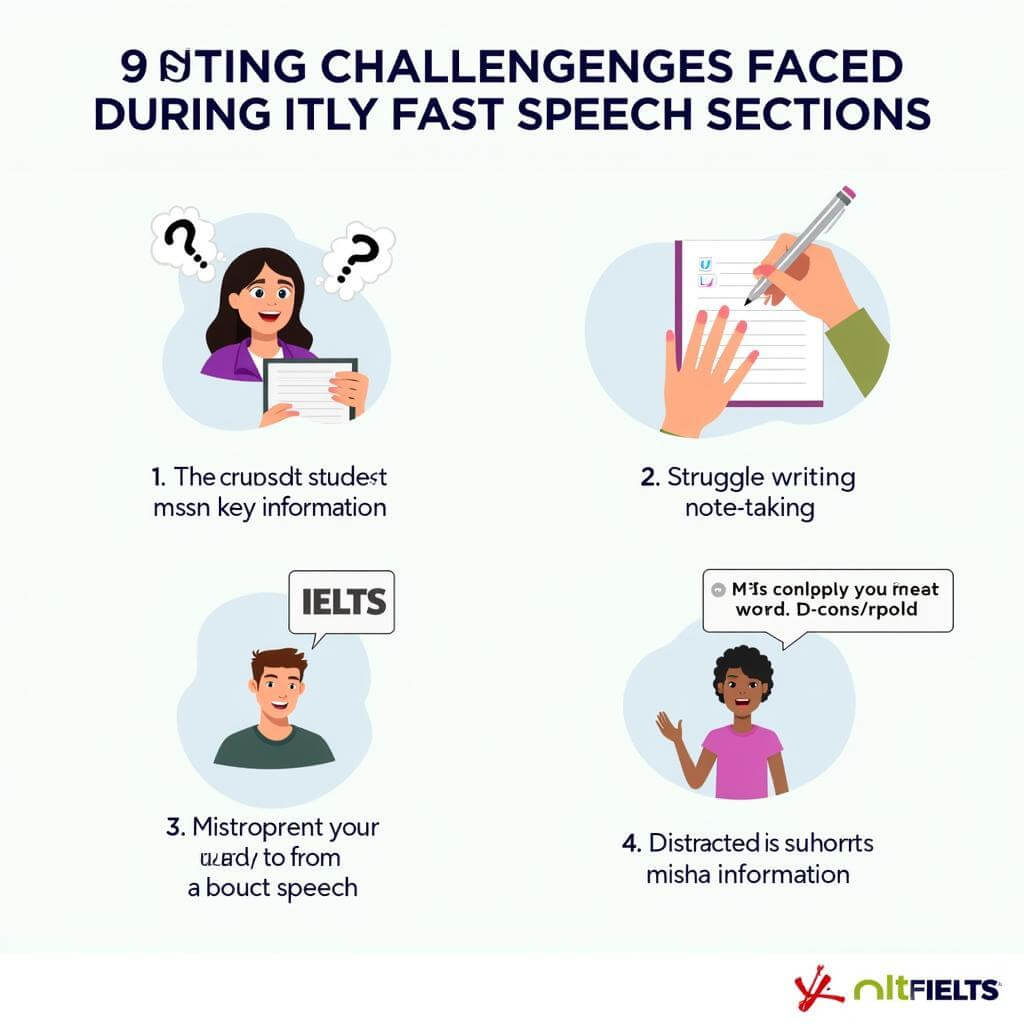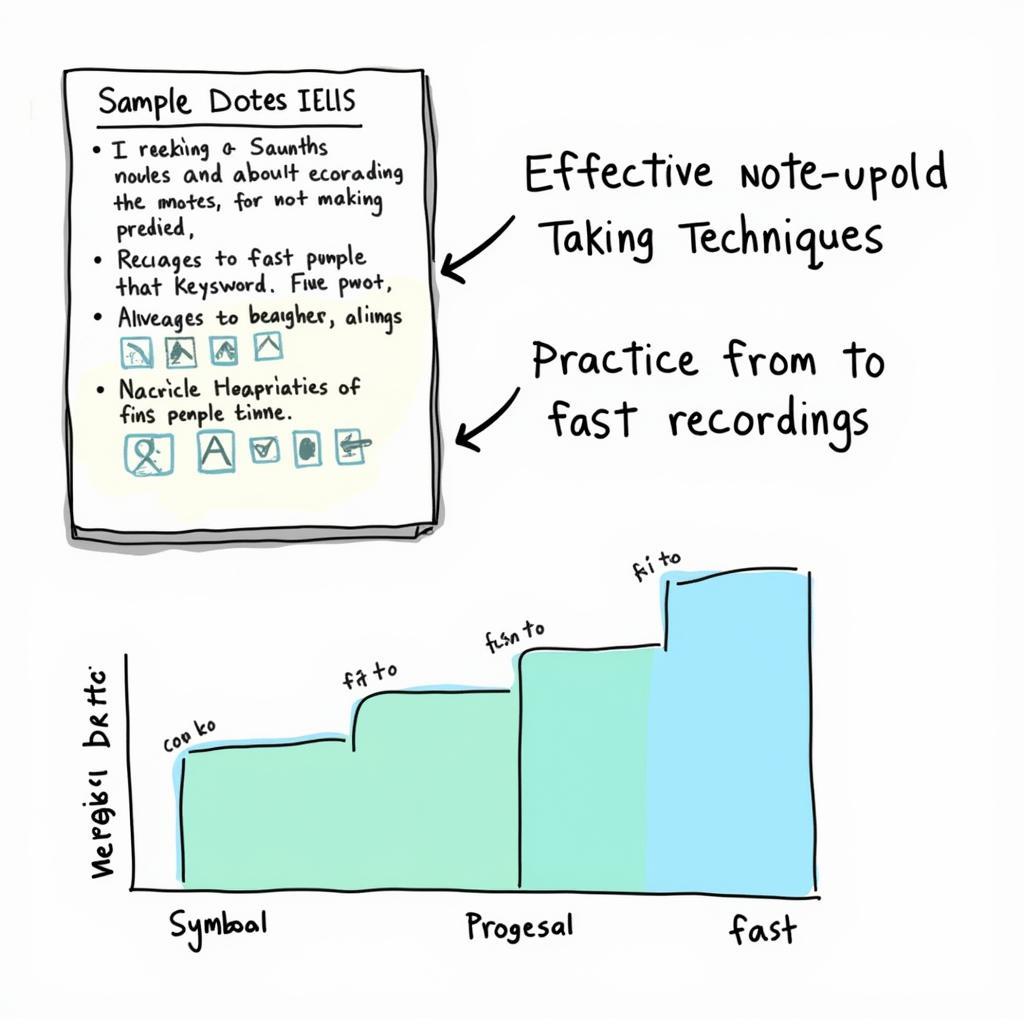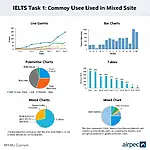The IELTS Listening test can be a daunting challenge, especially when it comes to handling fast speech efficiently. As an experienced IELTS instructor, I’ve witnessed countless students struggle with this aspect of the exam. However, with the right strategies and consistent practice, you can significantly improve your performance and confidently tackle even the most rapid speakers. Let’s dive into some expert tips to help you master this crucial skill.
Understanding the Challenge of Fast Speech in IELTS Listening
Before we delve into specific strategies, it’s essential to understand why fast speech poses such a challenge in the IELTS Listening test. The recordings used in the exam often feature native speakers conversing at a natural pace, which can seem lightning-fast to non-native ears. Additionally, the pressure of the test environment can make the speech seem even more rapid.
Dr. Emma Thompson, a renowned IELTS researcher, explains, “The human brain processes familiar speech patterns more easily. For non-native speakers, the unfamiliarity with native speech rhythms can make it seem unnaturally fast, even when it’s at a normal conversational pace.”
Common Issues Faced by Test-Takers
- Missing key information
- Struggling to keep up with note-taking
- Misinterpreting words due to connected speech
- Losing focus and missing subsequent information
 IELTS Listening Fast Speech Challenges
IELTS Listening Fast Speech Challenges
Now that we’ve identified the primary challenges, let’s explore effective strategies to overcome them and handle IELTS listening recordings with fast speakers.
Strategies for Handling Fast Speech Efficiently
1. Develop Active Listening Skills
Active listening is crucial for handling fast speech. Train your ears to focus on the content rather than trying to catch every single word.
- Practice shadowing: Repeat what you hear immediately after the speaker, mimicking their intonation and rhythm.
- Focus on stressed words: In fast speech, content words (nouns, verbs, adjectives) are usually stressed more than function words (articles, prepositions).
2. Improve Your Prediction Skills
Predicting potential answers can significantly enhance your ability to handle fast speech.
- Analyze questions before listening: Identify key information you need to listen for.
- Use context clues: Pay attention to introductions and transitions that might indicate upcoming important information.
Dr. Thompson advises, “Prediction is a powerful tool. By anticipating possible answers, you’re priming your brain to catch relevant information, even in rapid speech.”
3. Master Note-Taking Techniques
Efficient note-taking is essential when dealing with fast speech in IELTS Listening.
- Use abbreviations and symbols: Develop a personal shorthand system.
- Focus on keywords: Don’t try to write everything; capture the essence.
- Practice with increasing speeds: Start with slower recordings and gradually move to faster ones.
 IELTS Listening Note-Taking Techniques
IELTS Listening Note-Taking Techniques
4. Familiarize Yourself with Connected Speech
Understanding connected speech patterns is crucial for how to improve understanding of connected speech in IELTS listening.
- Study common contractions and elisions: For example, “going to” often sounds like “gonna”.
- Practice with authentic materials: Use podcasts, news broadcasts, and TV shows to expose yourself to natural speech patterns.
5. Build Mental Stamina
Handling fast speech requires mental endurance. Building confidence for fast sections is crucial for maintaining focus throughout the test.
- Practice with full-length tests: Simulate exam conditions to build stamina.
- Use progressive listening exercises: Start with slower recordings and gradually increase the speed.
6. Develop Strategies for Different Question Types
Different question types require specific approaches, especially when dealing with fast speech.
- Multiple choice: Eliminate obvious wrong answers quickly.
- Fill-in-the-blank: Focus on the grammatical context to predict the type of word needed.
- Matching: Quickly scan all options before the audio begins.
For more detailed guidance on strategies for dealing with complex questions, refer to our comprehensive guide.
7. Learn to Handle Interruptions
In real-life conversations and IELTS recordings, interruptions are common and can make speech seem even faster. Handling interruptions in listening is a valuable skill to develop.
- Stay focused on the main speaker: Don’t get distracted by interjections.
- Practice with dialogues: Use materials that include multiple speakers and interruptions.
Practical Exercises to Improve Fast Speech Comprehension
- Speed Listening: Use audio player software to increase the playback speed of familiar recordings gradually.
- Dictation Practice: Transcribe short segments of fast speech, then check your accuracy.
- Gap-Fill Exercises: Listen to fast recordings and fill in missing words in a transcript.
- Accent Variety Training: Practice with speakers from different English-speaking countries to adapt to various speech patterns.
Conclusion
Handling fast speech efficiently in IELTS Listening is a skill that can be developed with the right strategies and consistent practice. By implementing these expert tips and dedicating time to regular practice, you’ll find yourself better equipped to tackle even the most challenging sections of the IELTS Listening test. Remember, improvement takes time, so be patient with yourself and celebrate your progress along the way.
Frequently Asked Questions
Q1: How fast is the speech in IELTS Listening compared to normal conversation?
A1: IELTS Listening recordings are generally at a natural conversational pace, which can vary. However, they’re designed to test your ability to understand speech at speeds you’d encounter in academic and everyday situations in English-speaking countries.
Q2: Can I ask the examiner to slow down or repeat the recording?
A2: No, the recordings are played only once, and the speed cannot be adjusted. This is why it’s crucial to develop strategies for handling fast speech efficiently before the test.
Q3: How can I improve my concentration during fast speech sections?
A3: Regular practice with full-length tests, mindfulness exercises, and improving your overall listening stamina can help enhance your concentration during fast speech sections.
Q4: Are there specific accents I should focus on for IELTS Listening?
A4: IELTS includes a variety of English accents, including British, American, Australian, and Canadian. It’s beneficial to practice with all these accents to prepare comprehensively.
Q5: How much time should I dedicate to practicing fast speech comprehension?
A5: Aim for at least 30 minutes of focused practice daily. Consistency is key, so regular short sessions are often more effective than occasional long ones.


